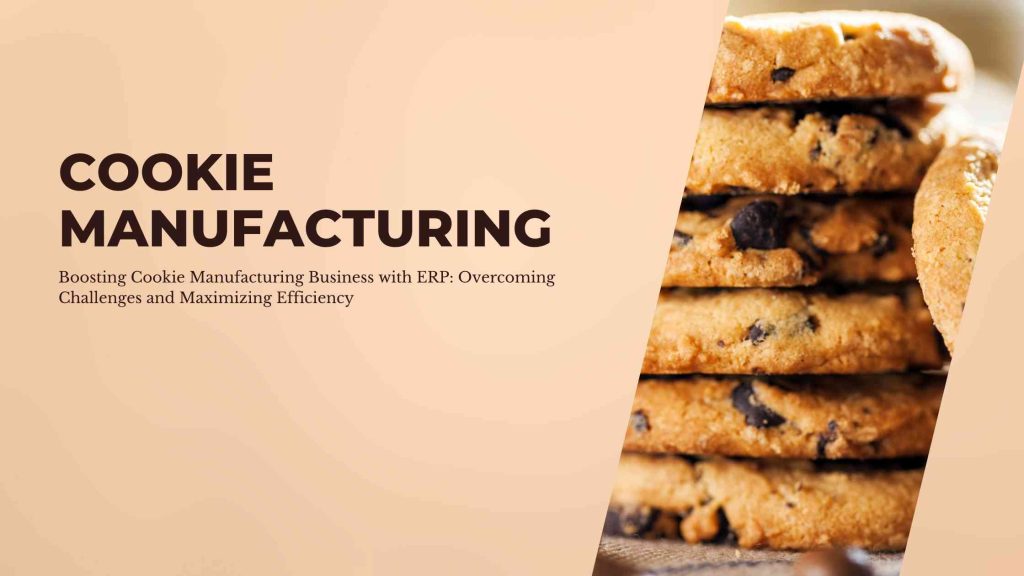Cookie manufacturers have seen an increase in revenue of 0.5% per year over the past five years and are expected to bring in $6.5 billion by 2023. In 2023, payment is expected to fall by 1.0%, while profit will account for 1.7% of sales that year. Cookies are baked treats. They are small, sweet, and cake-like, consisting of flour, sugar, liquid and fat. Cookies are characterized by high sugar, high fat, and low moisture.
The process of making cookie dough includes three main stages: creaming, which entraps air cells; incorporation of liquids; and, finally, the addition of dry ingredients. This last step prevents gluten from forming, producing a short bite for the cookie. Cookies are made in many different shapes, sizes, and formulas. Their main components are flour, water, fat, and sugar. Chemical leavening is also commonly used in commercial cookie manufacturing.
Cookie manufacturing is a highly competitive industry that requires efficiency, quality control, and effective management of resources. However, cookie manufacturers often need help with their operations, ranging from inventory management and production planning to quality control and regulatory compliance. To address these challenges and maximize business performance, implementing an ERP system can be a game-changer. This article will explore the key challenges cookie manufacturers face and how an ERP solution can help boost cookie manufacturing businesses.
Inventory Management Challenges:
Cookie manufacturers often need help to maintain optimal inventory levels due to fluctuating demand, perishable ingredients, and complex supply chains. Manual inventory tracking can lead to inaccuracies, stockouts, or excessive inventory. A Cloud ERP provides real-time visibility into inventory levels, automates reorder processes, and enables efficient lot tracking to minimize waste and streamline supply chain operations.
Production Planning and Scheduling:
Efficient production planning and scheduling are critical for cookie manufacturers to meet customer demands and avoid production bottlenecks. Manual planning processes can be time-consuming and error-prone. With an ERP system, manufacturers can optimize production schedules based on accurate demand forecasting, real-time inventory data, and resource availability. It ensures efficient production flows, minimizes downtime and improves overall productivity.
Quality Control and Compliance:
Maintaining consistent quality and adhering to regulatory compliance standards are paramount in the cookie manufacturing industry. Manual quality control processes may result in inconsistencies and potential non-compliance issues. An ERP system offers robust quality control modules that enable manufacturers to define quality parameters, track production data, conduct inspections, and ensure adherence to industry regulations. It improves product quality, minimizes recalls, and enhances brand reputation.
Data Management and Analysis:
Cookie manufacturers deal with vast amounts of data related to inventory, production, sales, and customer preferences. Manually managing and analyzing this data can be overwhelming and time-consuming. ERP systems provide centralized data management and robust analytics tools, allowing manufacturers to gain valuable insights into key performance indicators (KPIs), identify trends, and make data-driven decisions. It enables manufacturers to optimize processes, identify cost-saving opportunities, and capitalize on market trends.
Streamlining Supply Chain Management:
Efficient supply chain management is crucial for the timely delivery of cookies while minimizing costs. Manual procurement processes, lack of visibility into supplier performance, and inefficient logistics management can impact the overall supply chain efficiency. An ERP system integrates procurement, vendor management, and logistics functions, enabling seamless communication with suppliers, optimizing procurement processes, and improving coordination throughout the supply chain. This results in reduced lead times, enhanced supplier relationships, and cost savings.
The cookie manufacturing industry faces numerous challenges hindering business growth and success. However, by leveraging the power of an ERP system, cookie manufacturers can overcome these challenges and boost their business efficiency, productivity, and profitability. From inventory management and production planning to quality control and supply chain optimization, an ERP solution provides a comprehensive framework to streamline operations, improve data visibility, and drive informed decision-making. By implementing an ERP system tailored to the specific needs of cookie manufacturing, businesses can gain a competitive advantage, maximize resource utilization, deliver high-quality products, and meet customer demands effectively in the dynamic cookie market.

Sangeetha brings 20 years of experience in Information Technology which includes Solution architecting, building micro services, research, and evaluation of business applications, integrating apps.

